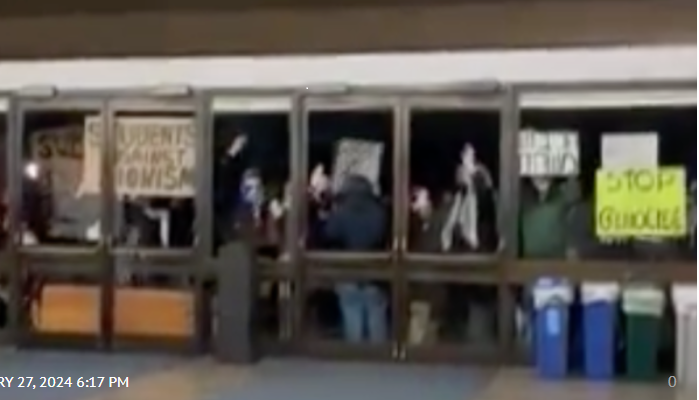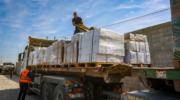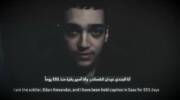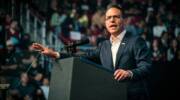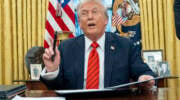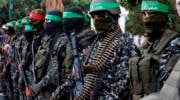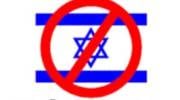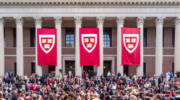The riot ‘was deeply concerning and a violation of some of our most important rules and values as a university,’ said UC Berkeley administration official.
By Dion J. Pierre, The Algemeiner
A mob of hundreds pro-Palestinian students and non-students shut down an event Monday evening at University of California, Berkeley featuring an Israeli soldier, forcing Jewish students to flee to a secret safe room as the protestors overwhelmed campus police.
Footage of the incident shows a frenzied mass of anti-Zionist agitators banging on the doors of the Zellerbach Library while an event featuring Israeli reservist Ran Bar-Yoshafat — who visited the university to discuss his military service during Hamas’ massacre across southern Israel on Oct. 7 — took place inside. The mob then stormed the building — breaking glass windows in the process, according to reports in the Daily Wire — and forced school officials to evacuate Jewish students to a secret safe-room.
“What happened last night was deeply concerning and a violation of some of our most important rules and values as a university, including freedom of speech, respect for diversity, and the ties that bind us together as a community,” UC Berkeley assistant vice chancellor for communications and public affairs Dan Mogulof told The Algemeiner on Tuesday during a phone interview. “What we saw last night has no recent precedent. More than an estimated 200 protesters showed up at the venue and gained unauthorized entry into the building. There has never been anything like what occurred last night.”
Mogulof pledged that the university will launch an investigation into the incident.
“We do not and will not ignore violations of our rules and values,” he said. “When we have events like this, we always have two priorities. One, to do everything in our power so the event goes forward and the other is to do everything in our power to protect the safety and well being of our students and members of the public, and given the size of the crowd, and the violence of the crowd, we were unable to do both, even with 20 police officers. The event had to be cancelled, so that we could evacuate the building and support the safety of the students.”
During the infiltration of Zellerbach, one of the mob — which was assembled by Bears for Palestine, which had earlier proclaimed its intention to cancel the event — spit on a Jewish student and called him a “Jew,” pejoratively.
“You know what I was screamed at? ‘Jew, you Jew, you Jew,’ literally right to my face,” the student who was attacked said to a friend. “Some woman — then she spit at me.”
Shaya Keyvanfar, a student, told The Algemeiner that her sister was spit on and that the incident was unlike any she had ever witnessed.
“Once the doors were closed, the protesters somehow found a side door and pushed it open, and a few of them managed to get in, and once they did, they tried to open the door for the rest of them,” Keyvanfar said. “It was really scary. They were pounding on the windows outside — they broke one — they spit at my sister and others. They called someone a dirty Jew. It was eerie.”
Keyvanfar added that it may be difficult to identify the culprits because anti-Zionist activists wear masks to conceal their identities.
Security concerns plagued the event all week, according to the Daily Wire, and after arriving on campus, Bar-Yoshafat was required to conceal his identity. Prior to that, the location of the event was changed to various venues to prevent violence.
“I just felt really bad for these kids because they were scared,” Bar-Yoshafat told the Daily Wire. “Girls were crying from being attacked, and I think the kid that was spat on was just so shocked. I don’t think the students anticipated so many people being violent, they thought they would just chant outside.”
During Tuesday’s interview with The Algemeiner Mogulof stressed that the university “understands now that we are in new territory” and called the incident a “black mark” on its reputation. He also explained that UC Berkeley launched an antisemitism awareness program in 2019, which included panels and talks with esteemed scholars of Jewish history such as Deborah Lipstadt, because it takes the issue of campus antisemitism seriously.
